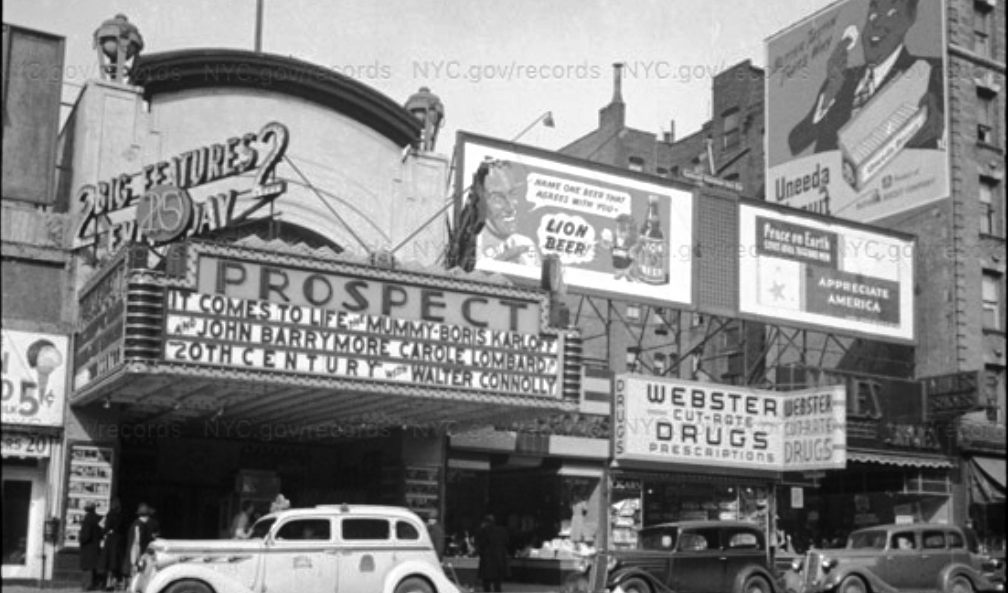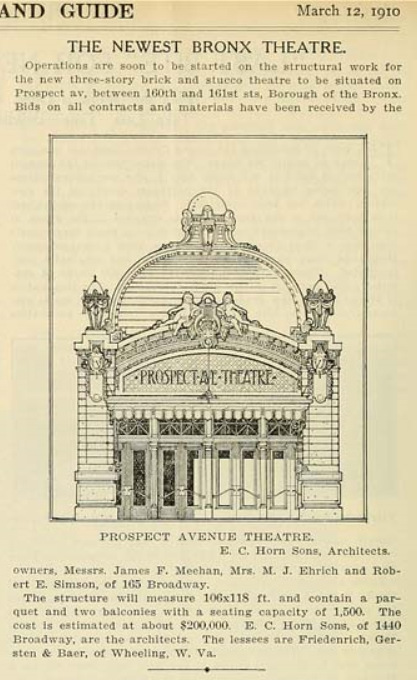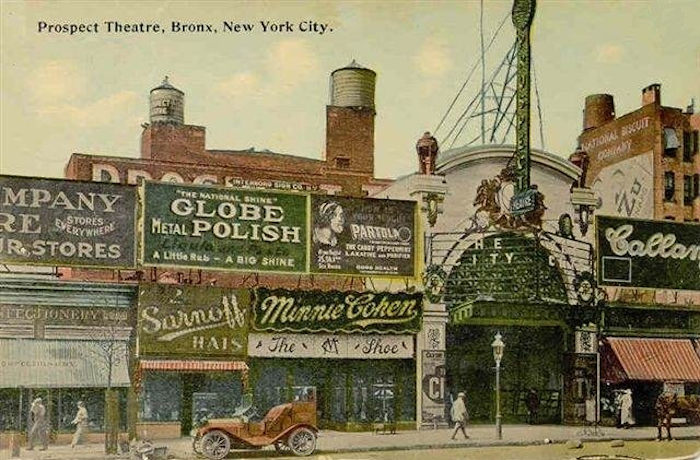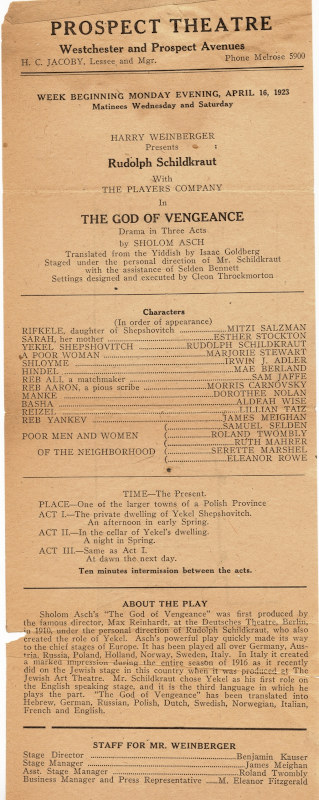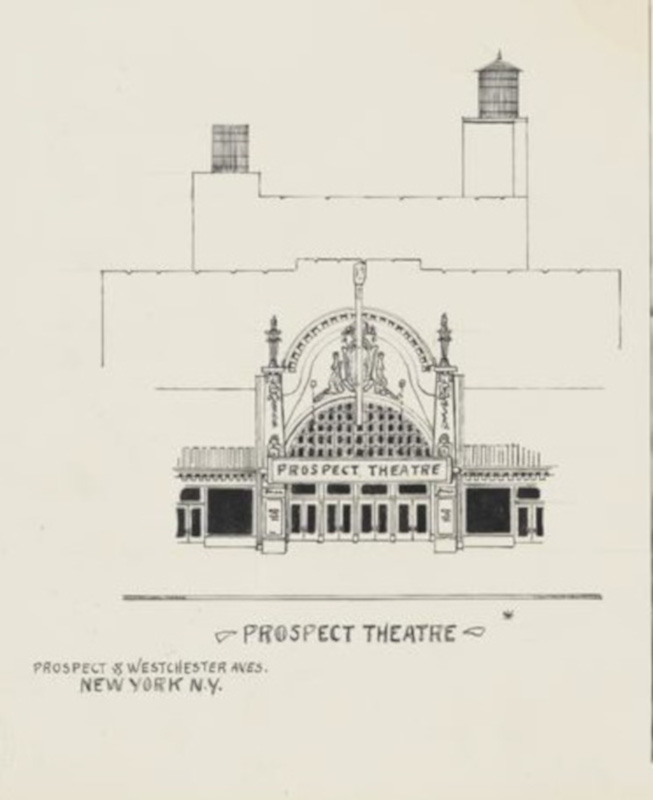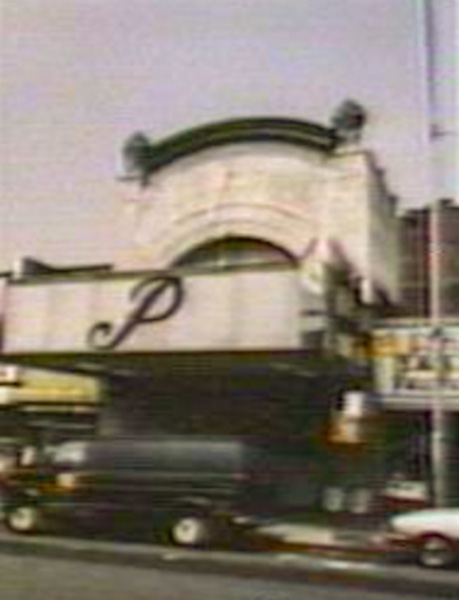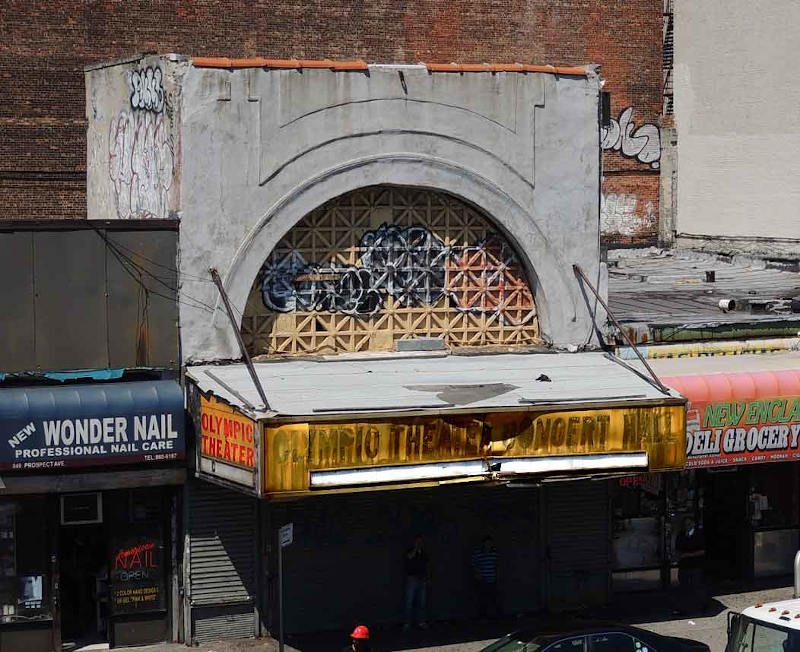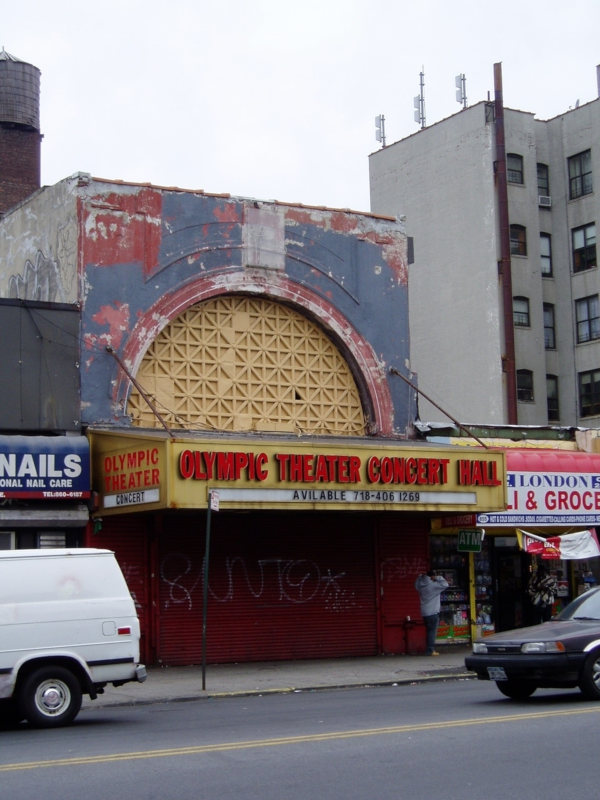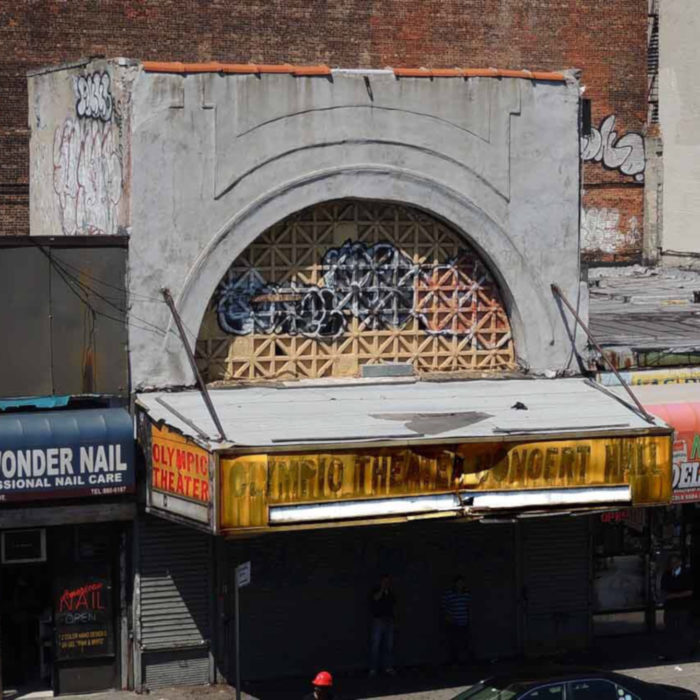
Prospect Theater
overview
The Prospect Theater is significant in the LGBT history of the Bronx as the venue for the Yiddish play The God of Vengeance, which played here immediately after the Broadway cast was indicted and the Manhattan production was shut down.
The play featured the first lesbian love scene performed on Broadway.
History
The Prospect Theater, in the Longwood neighborhood of the Bronx, opened in 1910 as a 1,500-seat house for legitimate theater, vaudeville, and burlesque. In 1919-20, a new 3,500-seat auditorium was built, while apparently retaining the original main entrance portion of the theater building. The enlarged Prospect Theater mainly featured Yiddish theater, until around 1935, when it became a movie theater. The Prospect is significant in the LGBT history of the Bronx as the venue for the Yiddish play The God of Vengeance, which played here immediately after the Broadway cast was indicted and the Manhattan production was shut down. The play featured the first lesbian love scene performed on Broadway.
Gott fun Nekome (God of Vengeance) was a play in Yiddish created in 1906 by a young Polish-Jewish writer, Sholem Asch. The story is about a Jewish brothel owner whose daughter has a lesbian relationship with one of his prostitutes. It opened in Berlin in 1907 and ran for six months, then was translated and performed in a dozen languages. The play in Yiddish was first brought to New York by David Kessler in 1907, where it sparked a press controversy over the play among Yiddish newspapers. An English language version was presented in 1922 at the Provincetown Playhouse on MacDougal Street, and then at the Greenwich Village Theater at Christopher Street and Seventh Avenue South. From February 19 to April 14, 1923, it was presented in a revised version at the Apollo Theater on West 42nd Street.
Reaction from moralists in the city was swift. Arthur Hornblow in Theater Magazine wrote:
A more foul and unpleasant spectacle has never been seen in New York…the audience is treated to a nightgown scene in which the women make overtures to each other which go so far beyond the pale of what is permissible that I can only voice my astonishment at the authorities allowing a thing of this sort to be continued before heterosexual audiences.
The New York Society for the Suppression of Vice, a group of self-appointed moralists that closely monitored the New York stage, lodged a complaint. Rabbi Joseph Silverman of Temple Emanu-El led the fight to shut down the play. Adolph Ochs, publisher of the New York Times, deemed it immoral and also decreed it should be closed. A grand jury was convened in secret and the entire cast and the producer were indicted on March 23 for “presenting an obscene, indecent, immoral and impure theatrical production,” and were arrested the following day. The American Civil Liberties Union declined to assist. Acclaimed actor Rudolph Schildkraut and producer Harry Weinberger were convicted on charges of obscenity on May 23 and fined $200 each, while the rest of the cast received suspended sentences. This was the first conviction of a performer in a play for immorality by an American jury. The Court of Appeals eventually overturned the conviction.
Only two days after it closed on Broadway on April 14, 1923, The God of Vengeance opened on April 16 at the Prospect Theater in the Bronx. It was performed in the same English language version.
This story was told in the play Indecent by Paula Vogel that was produced off-Broadway in 2015 and opened at the Cort Theater on Broadway in 2017.
Entry by Jay Shockley, project director (September 2019), and made possible by the New York State Council on the Arts with the support of Governor Andrew M. Cuomo and the New York State Legislature.
NOTE: Names above in bold indicate LGBT people.
Building Information
- Architect or Builder: E.C. Horn Sons
- Year Built: 1910; 1919-20 (new auditorium)
Sources
Arthur Hornblow, “Mr. Hornblow Goes to the Play,” Theater Magazine, April 1923, 68.
Cinematreasures website.
“The God of Vengeance”: Is the Play Immoral?” Museum of the City of New York Blog.
Kaier Curtin, “We Can Always Call Them Bulgarians”: the Emergence of Lesbians and Gay Men on the American Stage (Boston: Alyson Publications, 1987).“The 1st List of: Gay/Lesbian/Bi Industry People, Both in Front and Behind the Camera,” www.imdb.com, May 31, 2013.
The New York Times: “‘God of Vengeance’ Cast is Indicted,” March 27, 1923; “‘God of Vengeance’ Players Convicted” and “Better Than Censorship,” May 25, 1923; “‘God of Vengeance’ Star is Fined $200,: May 29, 1923; “‘God of Vengeance’ Appeal,” Jan. 11, 1924; “‘God of Vengeance’ Fines Upheld,” June 28, 1924; “Actors Win on Appeal,” Jan. 22, 1925; “Court Frees Actors in ‘God of Vengeance,’” April 4, 1926.
Sheryl Flatow, “God of Vengeance: Inspiration for Indecent,” In the Wings, Fall 2018.
Walter Grutchfield, “Prospect Theatre,” www.waltergrutchfield.net.
Do you have more information about this site?
This project is enriched by your participation! Do you have your own images of this site? Or a story to share? Would you like to suggest a different historic site?
